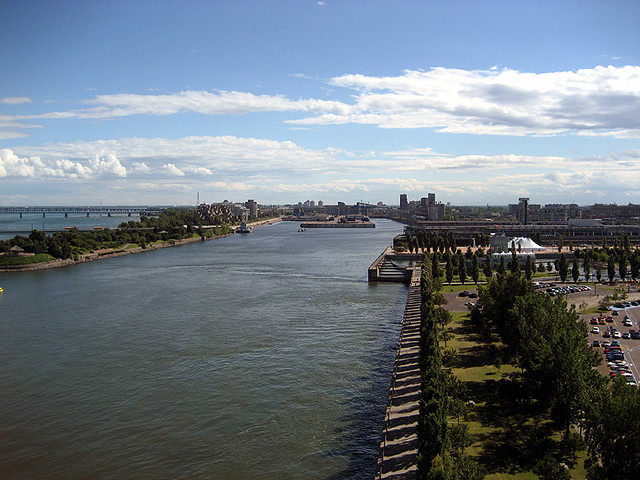On Monday, the Canadian environment minister gave Montreal the go-ahead to release 8bn litres of untreated sewage into the St. Lawrence River. By the time this is published, the project is slated to be complete despite loud public opposition and media coverage.
The mayor of Montreal, Denis Coderre, commented this process is essential in order for a temporary sewer closure to take place, as part of a larger expressway development project. This is not the case, as much as a handful of wastewater-related neglects mean it is the simplest and cheapest way to proceed with construction. Rhetoric like “we don’t have a choice” and vague reassurances, with the promise of data soon to come, keeps the public in the dark and guessing.
It is no more necessary or acceptable for a local government to carry out a procedure like this than it is for a multinational corporation to do so – while Montreal’s administration seems more likely to be held accountable for any mishaps, wouldn’t we rather avoid these gambles in the first place?
While Catherine McKenna, Liberal Environmental Minister, has made provisions to ensure the discharge will be monitored and contingency plans are in place, this decision reflects a tiresome, ineffective reliance on reactivity in the environmental sector rather than proactivity and prevention. The risks of the dump are not fully understood, but could include contamination and ecological disruption. Facing pressure to facilitate public works projects, McKenna admitted the situation is not ideal but resigned herself to the seemingly unavoidable. As long as select boxes are ticked, the discharge is free to carry on and the precedent is set for future polluters to push the boundaries even further.
Attempts by American politicians and authorities to open a dialogue and prevent the dump were unsuccessful. While the St. Lawrence waters that will be affected are in Canada, however, the environmental and political repercussions of a decision like this are not constrained by national borders. As New York Democrat Charles Schumer noted, the river is an ecosystem where human and nonhuman entities travel in both directions. What Canadian politicians privileged with political power decide about the fate of the St. Lawrence affects both Canadian and American citizens, not to mention immeasurable nonhuman entities with no voice in the debate. Even for Montreal’s residents, the choice was not a democratic one.
Environmental groups and citizens expressed opposition to the discharge plan, citing the likelihood alternatives might be available, but the reality is the dumping plan should not have been an option. No ends justify means involving that degree of unknowns and risk to ecosystems. If public spending went towards updating infrastructure so that there was an alternative storage solution for sewage (or more than one treatment plant for the entirety of Montreal), we would never be left backed into such a regrettable corner. The city uses combined sewer systems as well, a method that guarantees overflow into the river during major rainfall, which indicates that the dumping is a more prolific, ongoing pattern. Canada’s infrastructure spending plans have a track record of being only moderately successful, and further diverting unnecessary spending on projects that do more for appearances than posterity – updated hockey rinks and harbours galore, for example.
Montreal isn’t alone here. On Canada’s West Coast, Victoria dumps its raw sewage into the Pacific with little consideration for the resultant distribution of bacteria, pollutants and nitrates. There’s only so many cities that can use these arguments – that the ocean is so big, or the river flows so fast, or nature is so powerful – before we all pay the price of irresponsible dumping.
Image credit: Benedict W

